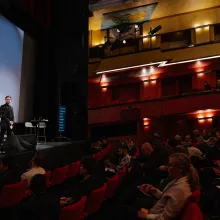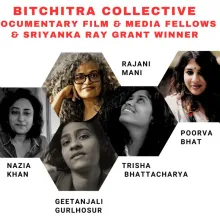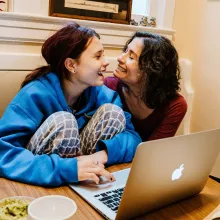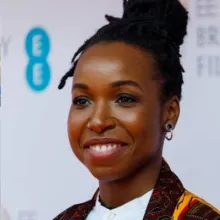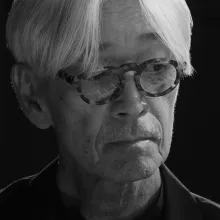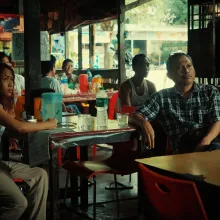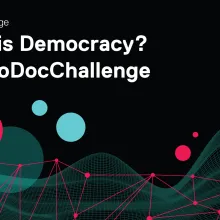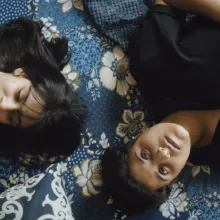Stephen Maing is an Emmy-award winning director and cinematographer based in New York City. His most recent film, UNION (2024), which he directed, filmed, and edited, is an immersive cinéma vérité account of the historic efforts by workers to unionize the first Amazon fulfillment center.
Latest Posts
As IDA prepares to convene hundreds of documentarians and storytellers from around the world at Getting Real ’24, we must acknowledge the ongoing violence and intimidation aimed at journalists, documentarians, and media workers across numerous world crises.
“In a time when public interest media is in jeopardy—from market forces, from big tech, from political pressures—we need to organize,” declares DISCO , a network of documentary organizations in the first volume of their new endeavor, the Independence Project, which was unveiled during the industry program of CPH:DOX, Copenhagen’s prominent documentary festival (which ran March 13-24). For DISCO, the Independence Project and the “independent” label are needed to “reclaim our identity,” according to the report. “Only then and only together will we be able to make the case for the resources and
Bitchitra Collective: Indian Women in Documentary announces the second cohort for the Bitchitra Collective Documentary Film & Media Fellowship. Each will receive a $2,000 grant for an ongoing short or feature-length documentary project and a year-long mentorship with an established filmmaker. New this year, in partnership with Brown Girls Doc Mafia (BGDM), Bitchitra Collective established the inaugural Sriyanka Ray Grant, named after a founder of Bitchitra and a beloved community-based artist and organizer within BGDM. The recipient of the Sriyanka Ray Grant will receive $4,000. Awarded
Documentary is happy to debut an exclusive clip from Anna Moot-Levin and Laura Green’s Matter of Mind: My Parkinson’s , the second film in the co-directors’ trilogy spotlighting individuals living with degenerative diseases. The first, Matter of Mind: My ALS , debuted on PBS’s Independent Lens last year. Matter of Mind: My Parkinson’s will follow on Independent Lens on Monday, April 8, 2024, at 10 p.m. local time on most stations (check local listings). On the clip, the co-directors write, “In this clip, we meet Veronica Garcia-Hayes, who was diagnosed with young-onset Parkinson’s at the age
Filmmakers Asmahan Bkerat , Cherish Oteka , and Sharon Yeung are selected out of 76 nominees to receive $30,000 each supporting their feature-length journalistic documentary films. Made possible by the Jonathan Logan Foundation , the Logan Elevate Grant provided $380,000 to support 17 filmmakers in addition to story consulting for grantees since 2018. IDA’s Director of Funds, Keisha Knight , said, “The purpose of Logan Elevate is to amplify the voices of women identifying or nonbinary nonfiction filmmakers of color. We are thrilled to be able to award 30k in unrestricted funds to these three
World-renowned Japanese musician Ryuichi Sakamoto’s work was deeply entwined with cinema. He was a prolific composer of movie scores, an occasional actor, and featured in numerous concert films and biographical documentaries like 2021’s Ryuichi Sakamoto: Coda. It feels appropriate that his last full performance, recorded only a few months before his death in March 2023, is not merely a concert film but a concert as a film. Directed by his son, Neo Sora, Ryuichi Sakamoto | Opus is simply described as a black and white portrait of Sakamoto at his piano in an NHK recording studio, playing 20
Known for lensing candid portrayals of people often living on the margins of society, Midi Z, who now lives in Taiwan, is among Myanmar’s few internationally recognized film directors today. His new film The Clinic , which world premiered last fall at IDFA, offers a complex and layered perspective of a nation in turmoil through focusing on a doctor couple, Aung Min and San San Oo, who also happen to be artists. Centering on the humble operations of the couple’s unassuming Yangon clinic, which bears more resemblance to a cluttered corner shop than a medical facility, the film zeroes in on the
Join our TikTok #MicroDocChallenge to express your views on #Democracy. We invite TikTok users to make micro docs about what documentary means to them between February 14 and March 15, 2024.
Twenty years after its founding, Copenhagen’s CPH:DOX has grown into one of the world’s most significant documentary film festivals, thanks to both its bold programming choices and its fast-growing market, CPH:Forum. Filmmakers pitching projects this year include heavyweights such as Talal Derki, Mads Brügger, Errol Morris, Sky Hopinka, Rachel Leah Jones, Signe Byrge Sørensen, and Ilinca Calugareanu. The fest’s meteoric rise has especially been evident in this short post-COVID period, with last year’s main competition featuring exclusively world premieres for the first time. The 2024 DOX:Award

